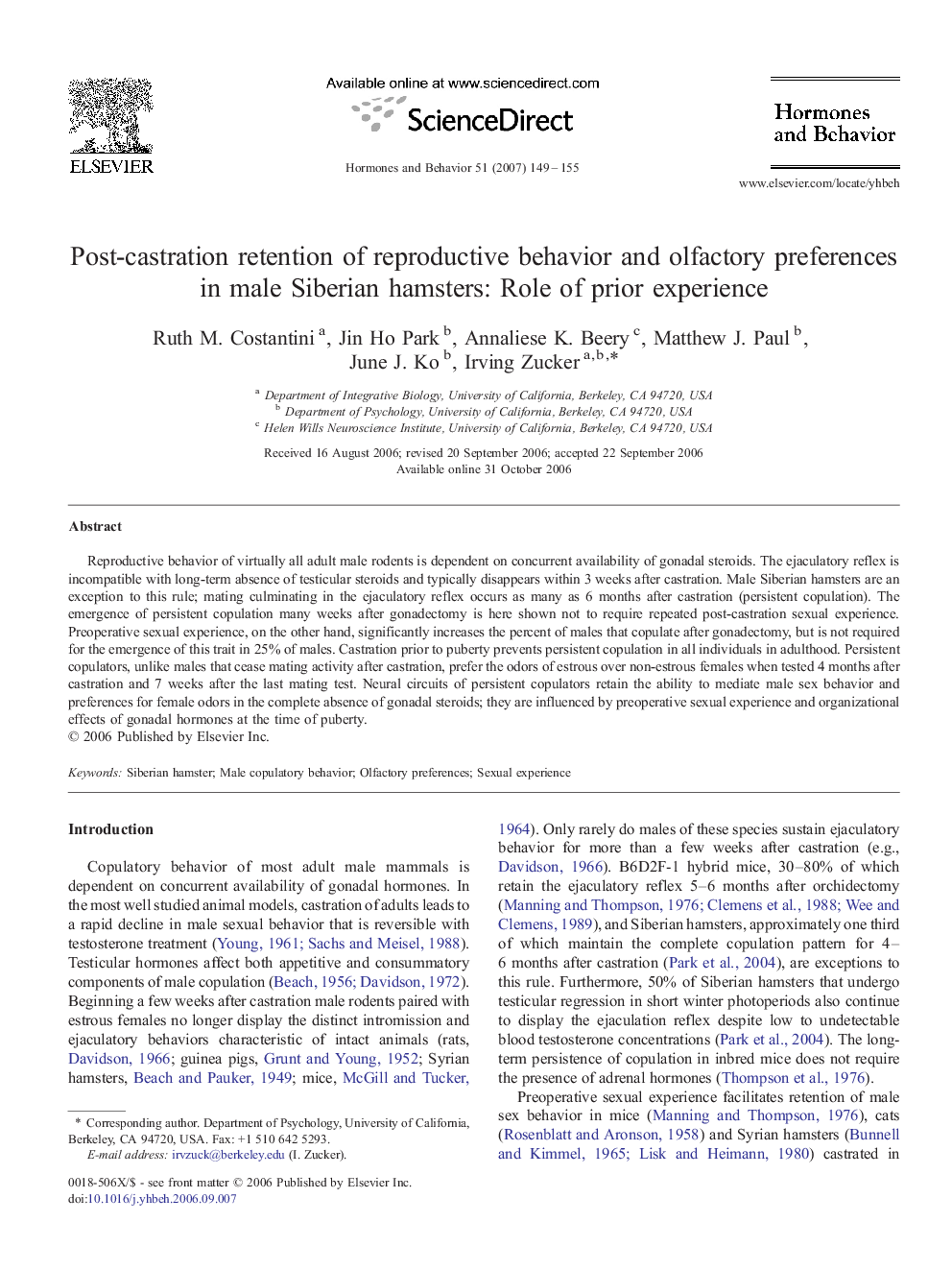| Article ID | Journal | Published Year | Pages | File Type |
|---|---|---|---|---|
| 323870 | Hormones and Behavior | 2007 | 7 Pages |
Reproductive behavior of virtually all adult male rodents is dependent on concurrent availability of gonadal steroids. The ejaculatory reflex is incompatible with long-term absence of testicular steroids and typically disappears within 3 weeks after castration. Male Siberian hamsters are an exception to this rule; mating culminating in the ejaculatory reflex occurs as many as 6 months after castration (persistent copulation). The emergence of persistent copulation many weeks after gonadectomy is here shown not to require repeated post-castration sexual experience. Preoperative sexual experience, on the other hand, significantly increases the percent of males that copulate after gonadectomy, but is not required for the emergence of this trait in 25% of males. Castration prior to puberty prevents persistent copulation in all individuals in adulthood. Persistent copulators, unlike males that cease mating activity after castration, prefer the odors of estrous over non-estrous females when tested 4 months after castration and 7 weeks after the last mating test. Neural circuits of persistent copulators retain the ability to mediate male sex behavior and preferences for female odors in the complete absence of gonadal steroids; they are influenced by preoperative sexual experience and organizational effects of gonadal hormones at the time of puberty.
